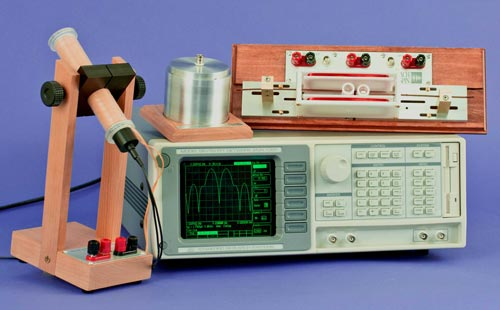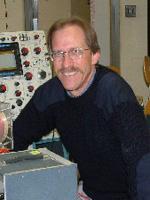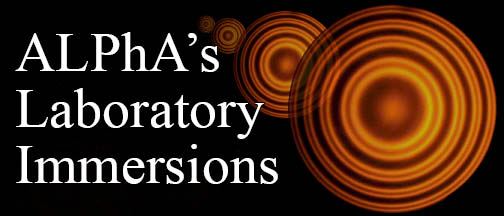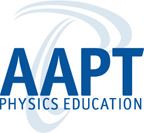- Home
- What We Do
- Laboratory Immersions
- Immersions 2023
- Imm2023Buffalo_Fourier
TeachSpin, Buffalo, NY
Fourier Methods
Dates: June 26, 2023 to June 28, 2023
Number of setups available: 1-2
Maximum number of participants: 2-4
------------------------------------------------------------------------------------------------------------------------------------------

Participants will experience the time-domain and frequency-domain views of various signals, ranging from simple to complex—including chaotic and noise waveforms. They will also learn the metrology of signals, and noise, in the frequency domain; the Fourier picture of recovery of weak sinusoidal signals immersed in noise will illuminate why lock-in detection works, and will also illustrate the meaning of the unit V/√Hz. Participants will acquire skills using the TeachSpin curriculum, and apply them to experiments in acoustic resonance, fluxgate magnetometry, or coupled oscillators.
Participants may bring a laptop, and are welcome (but not required) to bring along a favorite or familiar oscilloscope; the rest of the necessary equipment will be on hand.
Costs of the experiment: to replicate it as it will be used in the Immersion would cost $8k. Some, even many, of its ideas can be replicated at much lower cost, given a digital oscilloscope with FFT capability; of course, that way, lots of objects and systems would have to be improvised.
Host and Mentor:

David Van Baak is Professor Emeritus of Physics at Calvin College. His academic career included teaching and developing in the advanced-lab at Calvin College from 1980 through 2014; and since 2005 it has included collaborations with TeachSpin. Since 2014 he has been full time at Teachspin.
The Fourier transform
no longer belongs just to theorists! The fast-Fourier-transform
algorithm, and real-time data acquisition and digitization, now make the
Fourier content of real-life laboratory signals transparently visible
in table-top laboratory investigations. His experience with such
technologies has included a 1991 ILIP grant for Fourier Methods across
the curriculum, and has progressed to involvement with a commercial
release of a full Fourier-methods teaching package. If voltmeters and
oscilloscopes represent fundamental data-acquisition tools, and if a
lock-in amplifier stands for advanced capabilities, then a Fourier
analyzer is a wonderful intermediate-level tool for visualization and
measurement which physicists ought to acquire and pass along to their
students. Quite apart from teaching signal-processing capabilities of
remarkable sensitivity and resolution, this Immersion will reinforce the
skills of the Fourier way of thinking, and will (ideally) addict each
participant with the routine use of a Fourier analyzer in laboratory
diagnostics.
Dr. David A. Van Baak, Teachspin, Inc., 2495 Main Street, Suite 409, Buffalo NY 14214-2153. Email: dvanbaak@teachspin.com. Telephone: 716-885-4701.





